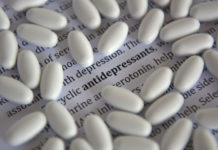Keeping Meili Off Psychiatric Drugs
We first came under pressure to give our developmentally disabled and autistic daughter a psychiatric drug when she was in her mid-teens. She was attending a local school for autistic children but was unable to adapt to their program, and we were urged to consult a psychiatrist. What enabled us to resist the pressure to put our daughter on drugs?
Soteria Israel: A Vision from the Past is a Blueprint for the Future
In Israel, there is a budding Soteria movement that foretells of a possible paradigm shift in care. The thought is that such care may become a first-line treatment for newly psychotic patients.
Psychologist Who Set Standard for Diagnosing ADHD Dies at 84
From The New York Times: Keith Conners, the psychologist whose work established the first standards for diagnosing and treating what is now known as attention...
Different Antipsychotics Have Different Effects on Brain Volume
First generation antipsychotics seem to cause general brain volume loss, while second generation antipsychotics seem to both increase and decrease the thickness of different parts of the brain.
Study Explores Māori Community’s Multifaceted Understanding of “Psychosis”
A new study explores how “psychosis” and “schizophrenia” are viewed within the Māori community in New Zealand.
New Study Concludes that Antidepressants are “Largely Ineffective and Potentially Harmful”
A new study published in Frontiers in Psychiatry concludes that “antidepressants are largely ineffective and potentially harmful.”
Outcomes of Childhood Bullying on Young Adults’ Wellbeing
A qualitative study explores young adults’ childhood bullying experiences.
FDA Asks Pfizer for Update to Zoloft Label, Warns of Birth Defect Risks
Bloomberg reports that the FDA asked Pfizer in August “to modify safety warnings for its antidepressant Zoloft (sertraline) and acknowledge for the first time that some studies linked the mood-altering medication to heart defects in newborns.”
Parental Conflict Changes Emotion Recognition in Children, Study Finds
Study suggests interparental conflict causes lasting damage in the way children are able to recognize and process emotions.
Researchers Blog about Links Between ADHD Prescribing and Drug Costs
University of Toronto and Princeton University researchers take to Bloomberg View to discuss the findings from their large-scale, long-term study of ADHD and medicating...
Researchers Question the Utility of an ADHD Diagnosis
A new article examines the usefulness of the ADHD diagnosis and suggests alternatives
“Culturally Specific Treatment Center Knows That One Approach Doesn’t Work for All”
"What was going on inside Turning Point was an experiment: a community-based treatment center designed to serve low-income African-Americans. After a few bumpy early...
Did the No Child Left Behind Act Boost ADHD Diagnosing?
The increasing use of psychiatric medications in toddlers, particularly of stimulants for ADHD, is explored by journalist Josiah Hesse on Substance.com. Looking into possible...
“I am 16 and the Education System is Destroying my Health”
“This is an article about how our education system is ruining young people’s lives. Nobody is listening to the teachers who say it, so perhaps someone will listen to me,” sixteen-year-old Orli writes in the Guardian. “Nothing is so important that it’s worth risking your health over, not even the piece of paper you get, age 16, to tell you whether or not you’re good enough.”
Are Drug Side Effects Driving Depression Rates?
A new study finds that more than a third of Americans are taking prescription drugs that can cause depressive symptoms as a side-effect.
Research Shows Mindfulness can Decrease Anxiety
A new study explores the impact of a Mindfulness-Based intervention on stress-related biomarkers in individuals diagnosed with Generalized Anxiety Disorder (GAD).
“Expert Reaction to Antidepressant Use and Suicidality”
Last week a study in BMJ linked antidepressants to the risk of suicide and aggressive behaviors. The Science Media Centre has compiled responses to...
Eat Breathe Thrive: Chelsea Roff on Eating Disorders, Trauma, and Healing with Yoga and...
Chelsea Roff is the Founder and Director of Eat Breathe Thrive (EBT), a non-profit with an inspired mission to bring yoga, mindfulness, and community support to people struggling with negative body image and disordered eating. I reached out to Chelsea to learn more about her life and organization, which she writes, “…is like AA for people with food and body image issues, plus yoga and meditation.” Chelsea shared her journey from life as a patient to yogi, author, and innovative community organizer. With her permission, you can find this interview below.
Are Antidepressants and Psychotherapy Really Equally Effective for Depression?
A recent review of the evidence by the American College of Physicians (ACP) determined that cognitive behavioral therapy and antidepressants had similar levels of effectiveness for the treatment of depression. In a critical commentary for the Journal of Mental Health, however, Michael Sugarman from Wayne State University challenges these findings. Pointing to differences in research settings and clinical practice, Sugarman asserts that “these head-to-head comparisons are heavily biased in the direction of psychiatric care.”
Omega-3 Fatty Acids May Help Prevent Transition to Psychosis
“When people with early-stage symptoms took omega-3 supplements for three months, they had much lower rates of progression than those who did not,” according to research out of Australia covered in this month’s issue of the New Scientist.
Early Brain Injury and Autism
A pediatrician writing for The Daily Beast discusses a recent study in the journal Neuron that found links between autism and brain injury during...
Are We Discovering More ADHD?
This is an important issue. According to Centers for Disease Control and Prevention (CDC), the percentage of children with an ADHD diagnosis continues to increase, from 7.8% in 2003 to 9.5% in 2007 and to 11.0% in 2011. The CDC also notes that the base rates for ADHD varies substantially by state ranging from a low of 4.2% in Nevada to a high of 14.8% in Kentucky.
Increasing Use of Antipsychotics for Disruptive Behavior in Children
Canadian researchers systematically reviewed all randomized controlled trials of second-generation antipsychotics (SGAs) and placebo in the treatment of disruptive behavior disorders in children, finding...
Study Examines US Mortality Rates for First-Episode Psychosis
At 12 months, rates of mortality for those diagnosed with first-episode psychosis are 24 times higher than the general population.
Massive Number of Antidepressant Meta-Analyses Biased By Industry
A massive number of meta-analyses of antidepressant clinical trials have financial conflicts of interest and are unduly influenced by pharmaceutical companies, according to a review to be published in an upcoming issue of the Journal of Clinical Epidemiology. Researchers also found that meta-analyses with industry ties almost never report any negative findings in their abstracts.




















